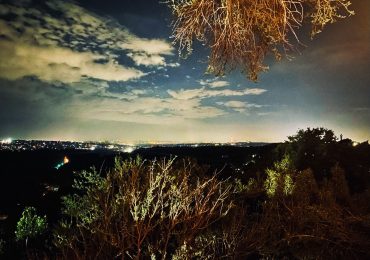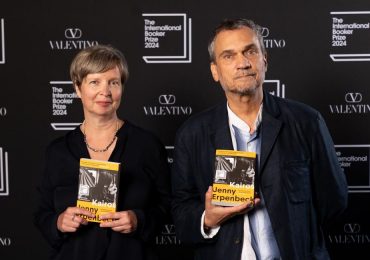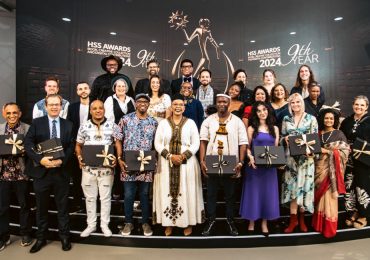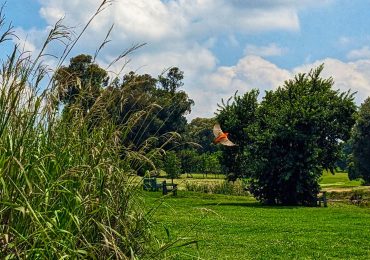‘Poetry is part of the Struggle. You use the armed Struggle; you use political methods … You recite a poem. It’s better than a three-hour speech. It gets to the heart of the matter. It moves people.’
—Lindiwe Mabuza, 1938—2021
Struggle stalwart, writer, cultural activist and respected poet Lindiwe Mabuza died on 6 December 2021, at the age of eighty-three.
‘It is with the greatest sadness that we announce the passing of our matriarch, ambassador Lindiwe Mabuza,’ Mabuza’s family said in a statement. ‘She passed away … in the loving company of her family. The family is grateful for all your prayers and outpouring of love during these past weeks whilst she has been receiving palliative care at home, where she wanted to be.’
Mabuza was a formidable force in the fight against apartheid, and will be remembered for her commitment to culture, and her belief in the power of the arts.
Mabuza was born in Newcastle, KwaZulu-Natal, in 1938, the daughter of a truck driver and a domestic worker, and moved to Soweto as a teenager to complete her high school education in Johannesburg. After matriculating she attended college in the United States, before completing her BA degree at Roma University in Lesotho.
Mabuza came back to South Africa in 1961, and went on to teach English and isiZulu literature at a university in Swaziland. In 1964, she moved to the United States, earning graduate degrees from Stanford University, as a Fulbright Scholar, and the University of Minnesota. Following this she returned to teaching, as a professor at the University of Minnesota.
Mabuza joined the ANC in 1975, moving to Lusaka in Zambia, and worked as a journalist for the underground Struggle radio station Radio Freedom, and as an editor for the ANC Women’s League journal Voice of Women. She was also the Chairperson of the ANC’s Cultural Committee. It was around this time that she began to write poetry.
Selections of Mabuza’s work appear in the anthologies Speak Easy, Speak Free (1977) and Poets to the People: South African Freedom Poem (1980), as well as The Heinemann Book of African Women’s Poetry (1995). She published her first collection in 1991, Letter to Letta, followed by Voices that Lead: Poems 1976–1996 (1998) and Footprints and Fingerprints (2008).
In an interview with Elaine Maria Upton and Lindiwe Mabuza in Feminist Studies, Mabuza called poetry a ‘part of a whole arsenal of weaponry to be used against apartheid’. She believed women in the ANC were not being heard, and in order to give them a voice co-edited the groundbreaking anthology Malibongwe! ANC Women: Poetry Is Also Their Weapon, which featured the work of women poets in exile. The book was originally published throughout Europe during the nineteen-eighties, but was banned in South Africa by the apartheid regime.
In an Introduction to the new edition of Malibongwe, published in 2020, The JRB Patron Makhosazana Xaba wrote:
While living in exile I knew about the existence of Malibongwe, but I never held a copy in my hands. It was only in the late nineteen-eighties that I met Lindiwe, as well as three of the book’s contributors, Baleka Kgositsile, Ilva Mackay and Rebecca Matlou. While I lived in Lusaka, Zambia, I shared a communal African National Congress (ANC) home in Chilenje with Rebecca, while Baleka lived close by, no more than a ten minute walk away. Eventually I learned that the two of them were poets. Later, I learned that Lindiwe and Ilva were also poets. I never came across their work while in exile. What I do know is that these poets—or these hands, to return to Musila’s metaphor—pried open bolted doors so I could walk in and claim a chair around the literary table, even though I never wrote a single poem while living and moving within the ANC spaces and places in exile. These poets’ multiple identities as comrades spanned from being activists to ambassadors (Chief Representatives as we called them, pre-nineteen-ninety), as well as combatants, feminists, guerrillas, mothers, public intellectuals, scholars, sisters, wives, writers, and more. For this anthology, I wish to call them comrades-cum-poets. These poets are, for me, living examples of the ever-expanding range of identities we can claim, as women. Although I have loved and enjoyed poetry all my life, it was only in 2000 that I began to claim it and write. It became an easy transition because in my earlier life I had known Black women who were poets. To finally place my hands on the Malibongwe manuscript makes me want to say: Malibongwe indeed!
Malibongwe was followed in 1989 by a collection of stories, edited by Mabuza and containing her fiction as well, titled One Never Knows: An Anthology of Black South African Women Writers in Exile.
In the nineteen-eighties Mabuza lived in Sweden, assigned by then-ANC president Oliver Tambo to head up the new ANC offices in Scandinavia. She reportedly became such a vigorous and effective opponent of the apartheid government that, on 8 September 1986, the ANC office was bombed in the hope of killing Mabuza and putting an end to her work. The same year, Mabuza was transferred to the United States, where she continued lobbying against apartheid and becoming instrumental in many of the trade bans and boycotts that were imposed on South Africa, before returning home in 1994 to cast her first vote.
Of her time in exile, Mabuza said:
‘No, there was no sacrifice. Sacrifice would have been not to do anything about apartheid. Sacrifice would have been working and earning loads of money outside the Struggle. That would have been a big sacrifice, not to be engaged in the Struggle. So, engaging in the Struggle was the most natural, normal thing. After all, children were being killed and children found themselves going right into the trenches. How could I not be involved when teenagers were being slaughtered? For me, art was an essential part of our struggle. We used to say that it’s a weapon, an extra weapon of the struggle.’
Mabuza was then elected to the new Parliament, before becoming South Africa’s ambassador to Germany. She was a celebrated diplomat, and served as High Commissioner to Malaysia and Brunei and the Philippines, as well as the United Kingdom and the Republic of Ireland.
She also published a children’s book, titled South African Animals (2007), and initiated and compiled the book Oliver Tambo Remembered (2007, edited by Z Pallo Jordan). She devised the idea to put together a collection of essays on former President Thabo Mbeki, which led to the bestseller The Thabo Mbeki I Know (2016), and edited the collection of letters Conversations with Uncle OR Tambo: Childhood Memories in Exile (2017). She also published two more poetry collections: From ANC to Sweden (1987); and Africa to Me: Gedichte Englisch/Deutsch (1999).
In her academic career, Mabuza was awarded honorary doctorates from the University of Durban-Westville, in 1993, and the University of Edinburgh in Scotland, in 2003.
In 1997, Mabuza received the Yari Yari Award from the New York University, for contributions to Human Rights and Literature. In 2004, she was awarded South Africa’s highest decoration, the national Order of Ikhamanga, for her ‘excellent contribution to mobilising the use of arts and application of creativity for democracy—displaying that cultural activism played a significant role in achieving democracy.’ In 2017 she received a Lifetime Achievement Award for Arts Advocacy from the Arts and Culture Trust of South Africa.
The JRB extends its condolences to Mabuza’s friends and family.





